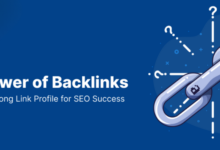Infosys handles 50 client projects using generative AI, says CEO Salil Parekh

Infosys handles 50 client projects using generative AI, says CEO Salil Parekh:
Interestingly, during Infosys’ annual general meeting on June 28, AI emerged as a prominent theme among shareholders. Chief Executive Officer Salil Parekh mentioned that Infosys has 50 active client projects utilising generative AI. This indicates that generative AI is becoming an integral part of the company’s offerings and its strategy for the future.
Generative AI refers to AI systems that generate new content, ideas, or solutions based on existing data or patterns. It has the potential to enhance productivity, automate tasks, and drive innovation across various industries. By leveraging generative AI, Infosys can provide its clients with advanced solutions and services that harness the power of artificial intelligence.

The transition towards an AI-first approach signifies that Infosys focuses on integrating AI technologies into its business operations and solutions. This shift reflects the growing importance of AI in the industry and its potential to reshape various aspects of the business landscape.
It is significant to note that Infosys focuses strongly on AI and intends to double down on AI capabilities. During the launch of Infosys Topaz, the company stated that it was engaging in conversations with over 300 clients regarding the offering. This indicates a substantial interest and potential adoption of AI solutions among Infosys’ clientele.
Chairman Nandan Nilekani acknowledged that despite the progress in generative AI, complexities and unresolved issues are associated with its implementation. Practical considerations, ethical concerns, and intellectual property-related matters must be addressed when scaling AI in the enterprise.
Nilekani highlighted the company’s AI-first strategy and the redesigning of its organization to effectively incorporate AI technology. By striking a balance between people, technology, and processes and segmenting work into cognitive tasks, Infosys aims to leverage AI capabilities and drive its business forward.
The cautionary note from Nilekani reflects the recognition that the integration of AI into the enterprise requires thoughtful navigation of challenges and considerations. Infosys appears to adopt a strategic approach to ensure that AI implementation aligns with ethical guidelines, addresses potential risks, and safeguards intellectual property.

Infosys actively embraces AI as a critical part of its offerings and growth strategy.
Nandan Nilekani, Chairman of Infosys, acknowledged short-term issues associated with AI while addressing shareholder questions. While concerns exist regarding AI’s potential risks and impact on humanity, Nilekani also emphasized the numerous robust use cases for AI.
His statement suggests that while there may be valid concerns about the implications of AI, the belief remains that AI has the potential to bring about significant positive change. The key lies in implementing the right guardrails and ensuring AI’s responsible and ethical use.
By establishing appropriate guidelines, regulations, and ethical frameworks, the potential of AI can be harnessed in a way that benefits society and drives positive outcomes. The responsible development and deployment of AI technologies can enhance productivity, efficiency, and innovation across various sectors.
Nilekani’s viewpoint aligns with the growing recognition that AI can be a force for good when used responsibly and ethically. It underscores the importance of ensuring that AI is developed and deployed in a way that upholds human values, respects privacy, and addresses potential biases or unintended consequences.
As the field of AI continues to advance, it becomes crucial to have ongoing discussions, collaborations, and regulatory frameworks in place to maximize the benefits of AI while mitigating risks. By establishing the right guardrails and fostering a responsible AI ecosystem, the potential of AI to drive positive change can be realized.
During Infosys’ annual general meeting, Chairman Nandan Nilekani addressed concerns and highlighted the potential of AI while emphasizing responsible AI practices. He mentioned that Infosys would leverage its Topaz infrastructure and AI-first approach to bring about transformation for its clients, ensuring that AI adheres to regulatory rules, privacy rules, and accuracy rules. Nilekani expressed belief in AI being a force for good when accompanied by the appropriate guardrails.
Regarding the concern of AI replacing humans in the workforce, Nilekani stated that while AI has the potential to improve productivity, it is found that more experienced individuals can derive incredible benefits from AI, such as through automatic code generation. He emphasized that productivity would increase as a result. CEO Salil Parekh added that the company had observed productivity improvements ranging from 10% to 30% in different areas.
On whether AI would make workers redundant, Parekh highlighted the emergence of new types of work instead.
Parekh stated that when new technologies are introduced, they often lead to changes in how clients perceive and utilize those technologies, expanding the scope of work provided by them. He further mentioned that the company uses their software development modules and approaches, particularly in the product business, and employs large language models to enhance productivity. The impact of these initiatives is expected to be seen in the coming quarters and years.

By applying AI and leveraging its software development expertise, Infosys aims to enhance productivity and drive transformative changes for its clients. Rather than replacing human workers, the company sees the emergence of new work opportunities facilitated by technological advancements. Infosys is committed to responsible AI practices, ensuring compliance with regulations and privacy guidelines.
The focus on responsible AI and productivity improvements aligns with the company’s strategy to integrate AI effectively into its operations and deliver client value. Infosys aims to navigate the evolving landscape of AI while balancing the needs of clients, the workforce, and society as a whole.
Against the backdrop of discussions on generative AI, IT companies like Infosys operate in a challenging demand environment. Infosys’s revenue guidance for FY24 stands at 4-7 per cent, indicating a cautious outlook.
Chairman Nandan Nilekani acknowledged that while the receding pandemic ended one set of challenges, the aftermath has presented new ones. He highlighted various factors impacting the demand environment, including inflation, interest rates, geopolitical tensions, demand volatility, supply chain disruptions, and the shift from efficiency to resilience and security. Nilekani emphasized the need for flexibility to navigate these rapidly evolving dynamics.
CEO Salil Parekh noted that the overall demand environment has changed, with the global economy experiencing a slowdown. He mentioned a shift in client focus from digital and cloud transformation to cost efficiency and automation. This suggests that organizations prioritise measures to enhance operational efficiency and reduce costs.
Regarding the growth of cloud technology, Parekh highlighted its significance as the foundational element for companies looking to embark on digital transformation journeys. Cloud adoption enables businesses to leverage advanced digital capabilities, enhance agility, and drive innovation.
The evolving demand environment underscores the importance for IT companies to adapt their strategies and offerings to meet clients’ changing needs. While the focus on cost efficiency and automation may impact certain business areas, it also presents opportunities for IT companies to provide solutions that address these requirements.
As the market dynamics continue to evolve, IT companies like Infosys must remain agile, responsive, and adaptable. This includes leveraging emerging technologies such as generative AI while aligning their offerings with clients’ evolving demands, whether in terms of cost efficiency, automation, or digital transformation.






